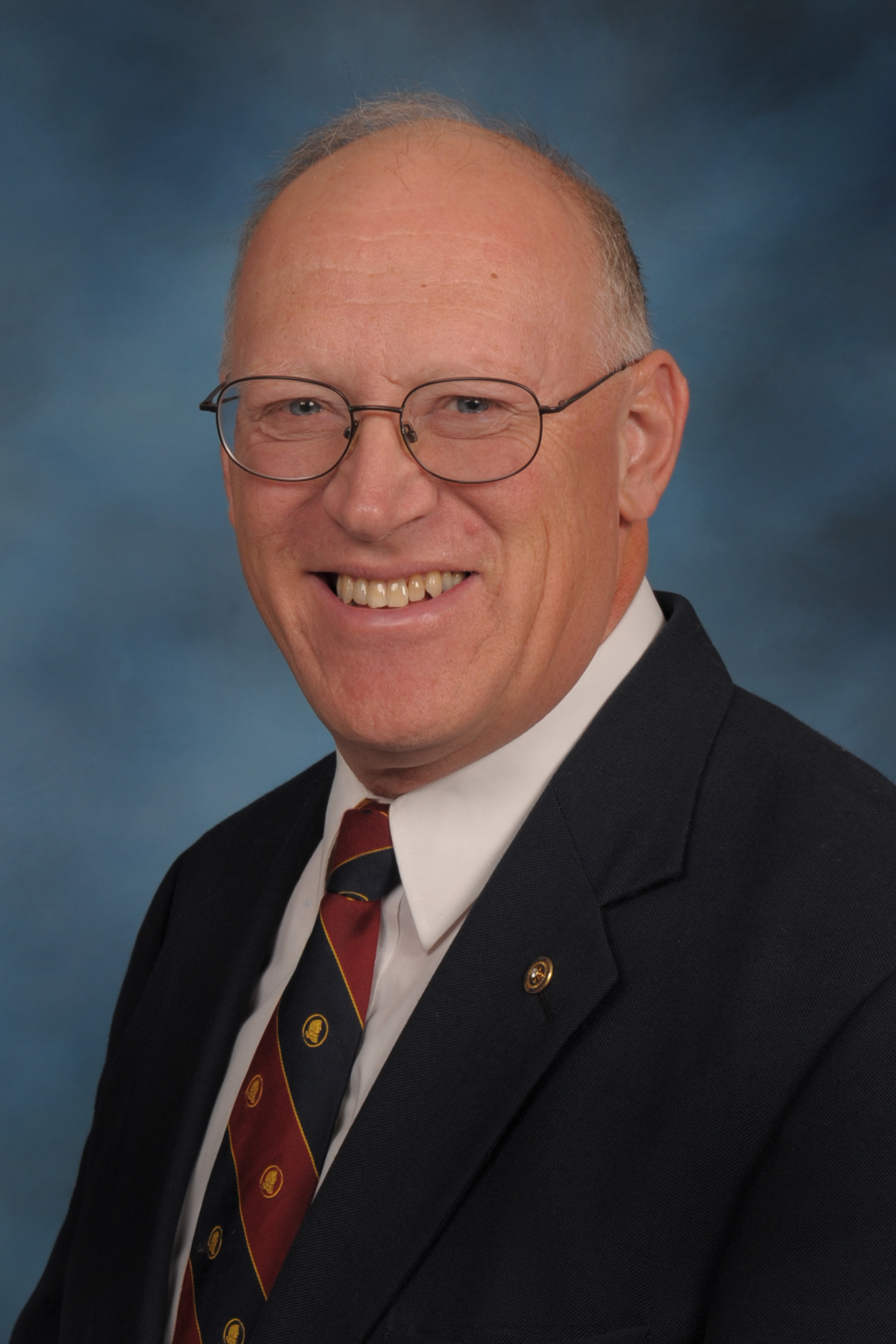How do institutions serving rural America deal with change? In the face of changing demands and demographics, how do those institutions respond? Some will choose to do nothing, to hunker down and try to ride out the status quo. Others faced with declining resources will decide they must close offices and mandate consolidation. But perhaps there is a third way: To encourage voluntary collaboration while improving program quality. Today in Kansas Profile, we’ll learn about a rural Kansas leader who has firsthand experience in facing those alternatives.
 Jerry Hall is an agribusinessman and extension volunteer in southeast Kansas. He was raised near the rural community of Elk City, population 311 people. Now, that’s rural.
Jerry Hall is an agribusinessman and extension volunteer in southeast Kansas. He was raised near the rural community of Elk City, population 311 people. Now, that’s rural.
Jerry was active in 4-H and FFA. After receiving an ag scholarship, he went to Coffeyville Community College and on to K-State where he met his wife Stephanie. He got a hog feeding job in southeast Kansas and now manages a feed mill for Springer Family Foods in Montgomery County.
Stephanie and Jerry have a daughter named Jerica. Jerica was also active in 4-H, serving as club president, county council president, and on a national livestock skill-a-thon team among many other activities. “The best part (for her) was mentoring other kids,” Jerry said. “In her last year at the state fair, a lamb which she had sold to another family ranked higher than she did in the class, but she was happy for the other kid.”
Jerry is active in the community, serving on the fair board, county 4-H foundation, and county extension council. One of those council’s key responsibilities is to prepare a budget for consideration by county commissioners. This can be a challenge, given the budget pressures of our current times. Agencies are asked to do more with less.
In the 1990s, the Kansas Legislature passed a law which created flexibility for county extension offices. The law created a format under which counties could go together to form multi-county districts, if approved by county extension councils and county commissioners. The districts are funded by local property taxes. Not only does this create more efficiency and enables counties to attract high quality agents, it allows those agents to specialize and share their expertise over more counties. Districts still have local offices and individual county fairs.
As budget pressures have grown, more counties have considered districting. Jerry Hall was serving on the Montgomery County extension council when it considered districting in 2006.
“We turned it down,” Jerry said. “We were only looking narrowly at the county right next door.”
Over time, Jerry and others began to reconsider the benefits of districting and reached out to nearby counties. After months of discussion, Crawford, Labette and Montgomery counties agreed to come together to form a multi-county district.
One issue was what to name the new district. “We threw out 12 different possibilities,” Jerry said. When someone suggested that it be called the Wildcat District, the name stuck. In July 2010, the Wildcat Extension District was created. Jerry Hall serves on the extension district board.
Jerry is a strong advocate for the resources and services offered by extension, both urban and rural. “Whether it’s young families or elderly or an ag producer needing unbiased research or somebody wanting to identify a plant in their yard, extension has something to offer every single person in every county in Kansas,” Jerry said.
Jerry is also very positive about his community’s experience with districting. “I’m a taxpayer, and we need to put this in charge of people in the community,” Jerry said.
“Our agents can be specialized rather than having to be generalists,” he said. “One can specialize in agronomy, one in economics, and one in livestock. It’s the same with our (family and consumer science) agents. They might specialize in personal finance or nutrition or aging issues, but they all help each other.”
“If I had to do it all over again, I’d support it 100 percent,” Jerry said.
How do institutions serving rural Kansas deal with change? We salute Jerry Hall for making a difference with visionary leadership to help serve rural Kansas in better ways.
